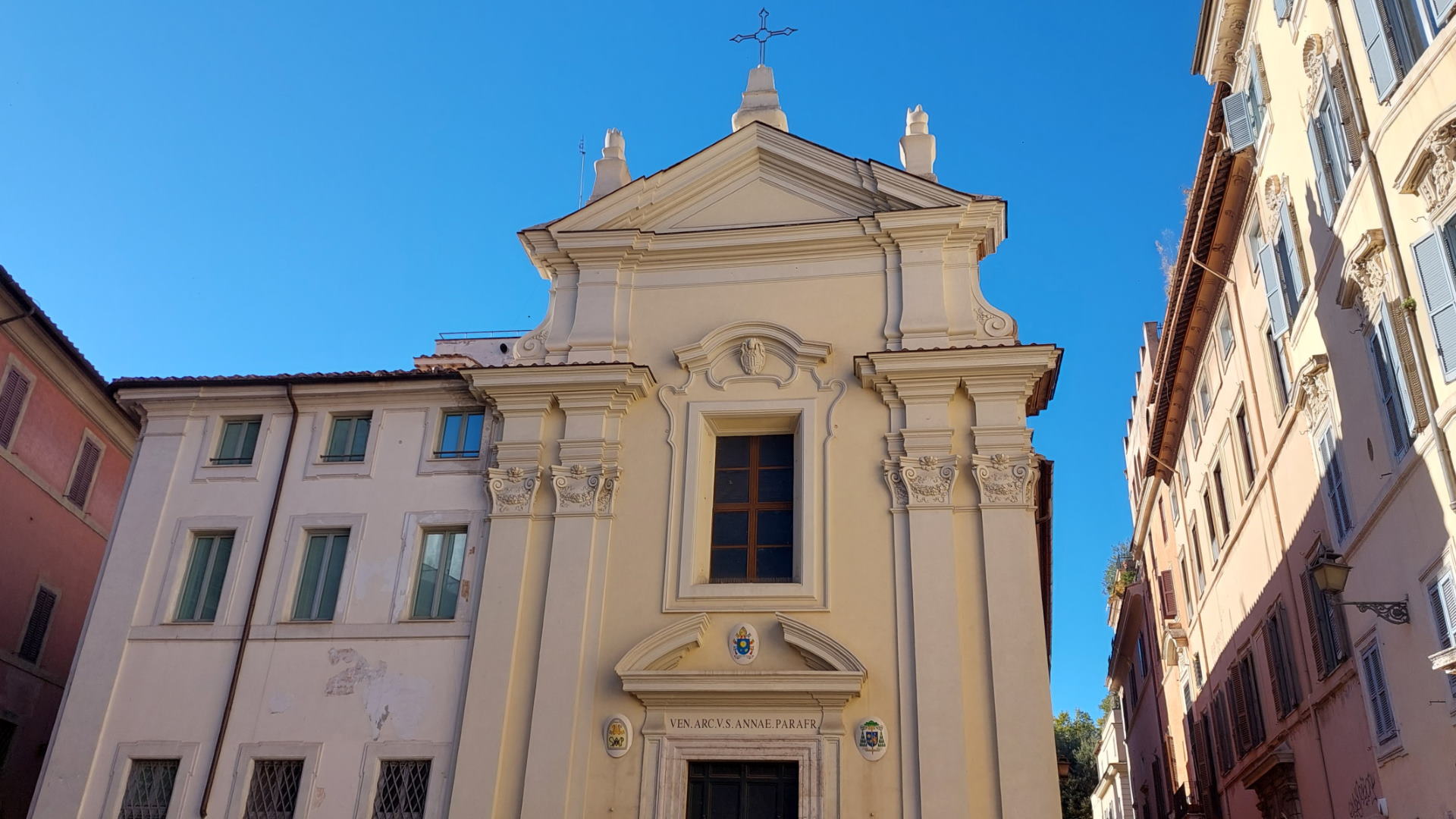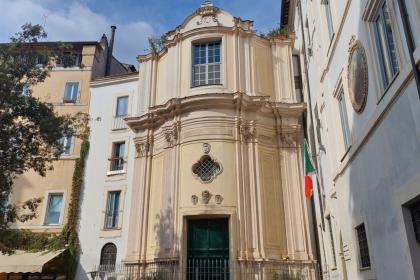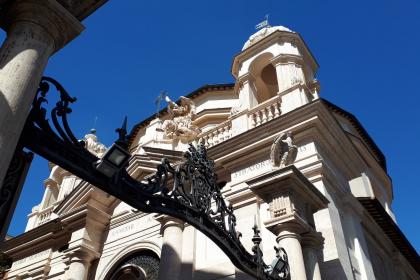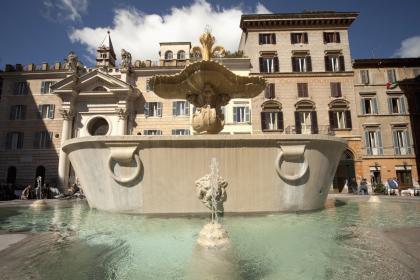
It is thought to be one of the oldest churches in Rione Regola, and its first references date back to 12th century, in the pilgrim guidebooks known as the Mirabilia Urbis Romae and in a papal bull of Pope Urban III, where it is listed as a parish church dependent on San Lorenzo in Damaso. Originally, the church was called Santa Maria “in Catenariis” or “in Caterinaris”, a name reported in documents with many variations which is perhaps and derived perhaps from the pious foundress of the church or, according to a suggestive hypothesis, from the nearby hospice where Christian captives who had been ransomed from Muslim pirates used to be accommodated. The captives allegedly hung their chains (catene, in Italian) in the church in thanksgiving. With time the name turned into Catherine. Thus, when the church was restored in the 16th century to a design by Ottaviano Mascherino, it was formally rededicated to the saint of Alexandria in Egypt, who was martyred in the 4th century on a spiked wheel (ruota, in Italian, hence the appellation “of the Rota”) and eventually beheaded.
The late Baroque façade was added in 1730, and in the center of the tympanum is the coat of arms of the Chapter of St. Peter’s, who restored the church in the late 19th century. The interior has a single nave, with three shallow arched recesses on each side forming chapels. The glory of the church is its 16th-century wooden polychrome coffered ceiling coming from the church of St. Francis at Ponte Sisto, which was demolished along with the Hospice of the Hundred Priests when the Tiber embankments were built. One of the chapels hosts the sculpture of the “Virgin and St. Anne”, once placed on the high altar of the church of Sant’Anna dei Palafrenieri and carried in procession during the famous “procession of the bellies”. Also preserved in the church is the funerary monument to Giuseppe Vasi, the Sicilian engraver who who left many depictions of Roman churches and monuments in the 18th century.
Since 1929, when the church of Sant’Anna became the parish church of Vatican City, Santa Caterina was handed over to the Venerable Archconfraternity of the Palafrenieri, which has remained in charge since then. In Papal Rome, the saint’s feast day, on 25 November, officially marked the beginning of winter. It was the day on which the “bbiferari” (pipe players) from Abruzzo and Ciociaria came down from the mountains, playing accompanied by pipers and bagpipes the “Christmas novena” and creating the special and evocative Christmas atmosphere exactly one month in advance.
Sieben Kirchen für sieben Kunsthandwerke

Ein Erbe an Geschichten und Traditionen, das es in den Gildekirchen zu entdecken gilt
Kirche Sant'Anna dei Palafrenieri

 Condividi
Condividi
Rione VII - Regola

Informationen
For the timetable of the masses and visiting conditions, please consult the contacts.
 Condividi
Condividi
Location
Um mehr über alle barrierefreien Dienste zu erfahren, besuchen Sie den Abschnitt barrierefreies Rom.











































